The best thing about email is that it makes it so easy to communicate with others. The worst thing about email is that it makes it so easy to communicate with others. Email may be the perfect example of the proverbial double-edged sword. What has made our lives more effective and efficient has also become the bane of our existence.
Many people spend several hours each day reading and responding to the deluge of emails they receive. Besides being a considerable time commitment, there also may be significant financial costs. For instance, Dr. Ian M. Paul of the Penn State College of Medicine tracked his emails for a year and found that he received 2,035 mass distribution emails. Estimating 30 seconds to read each email and an average physician’s salary, Paul calculated that the cost of all the emails to be more than $1,600 per doctor and over $1 million for his entire institution.
Some companies have noticed the widespread problem of email overload and sought to be part of the solution by marketing software to help us manage our in-boxes. Unfortunately, however, an increasing number of other organizations appear apathetic about being part of the problem, as my personal experience supports.
Suspecting that a few companies have been emailing me far too frequently, I did an impromptu, nonscientific study of my email “Deleted Items.” As you might expect, I found a variety of organizations and email frequencies. Here are some examples:
- Infrequent: once a month or less—Verizon
- Frequent: every week or two—NordicTrack
- Very Frequent: usually once a day—Amazon
- Extremely Frequent: several times a day--Groupon
Of course the nature and relevance of any communication makes a big difference. When there’s information that we really need to know, we may want frequent updates, for instance, for things like traffic conditions, the weather, or the status of a sick loved one. However, it’s rare that most people need daily let alone hourly updates about patio furniture or copy paper.
So, who is your worst email offender? As I suggested above, one of mine is Groupon. In my personal email study, I found that Groupon has been sending me FOUR EMAILS A DAY. Here are the times and subject lines just from yesterday, Friday, June 26:
- 3:55 am “$1 Deals and More—Today Only!”
- 12:03 pm “Frozen Yogurt”
- 1:39 pm “Go Wild on Vacation”
- 4:02 pm “Thermal Self-Heating Neck Pad, Cartier Swiss Watch Collection, . . .”
To make matters worse, as I scanned my deleted emails over the last couple of weeks, I realized it’s been the same virtually every day—FOUR GROUPON EMAILS. Don’t get me wrong, I generally like Groupon and appreciate its special deals, mainly for restaurants. However, I am becoming bothered by the frequency of its contact.
If it were just Groupon inundating my in-box it wouldn’t be so bad, but what some organizations don't seem to grasp is that they aren’t the only company with which I do business. A host of other organizations are also jockeying to be top-of-my-mind. For instance, it’s only 9:45 am, and already today I’ve gotten emails from Amazon, Lowes, Local Flavor, Living Social, Newegg, and Staples.
Furthermore, Sears, from which I rarely purchase, has sent me THREE EMAILS BEFORE 10:00 am:
- “Jump on it! Get $10 off your $20 online purchase”
- “We're serious, you've been picked to enjoy our FIREWORKS SALE!”
- “Schedule your annual appliance check-up”
It looks like I could have a new contender for worst email offender.
What if each of the companies that call us customers sent us three or four emails a day? It would become nearly impossible to cope with all of the communication.
Besides recognizing that they are only one of thousands of companies using direct email marketing, companies like Groupon and Sears also need to understand the law of diminishing returns, i.e., at some point sending customers one more email will be less likely to produce a favorable response. Of course, if firms' in-box bombardment frustrates or angers customers, additional emails will even become counterproductive.
With so many companies sending so many emails, it’s becoming increasingly doubtful that flooding in-boxes creates stakeholder value. Furthermore, email inundation threatens to elevate commercial activity over other important facets of our lives such as family and friends, thereby jeopardizing societal values. In sum, organizations’ excessive direct emailing represents “Mindless Marketing.”
Learn more about the Mindful Matrix and Mindful Meter.
Check out Mindful Marketing Ads and Vote your Mind!



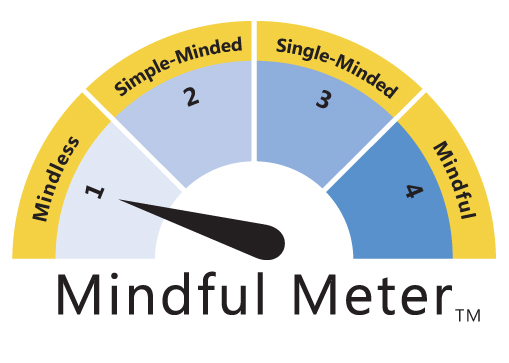

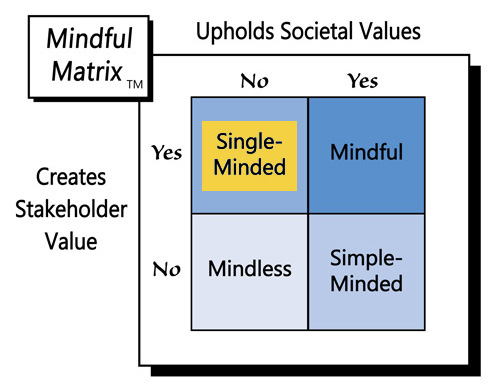


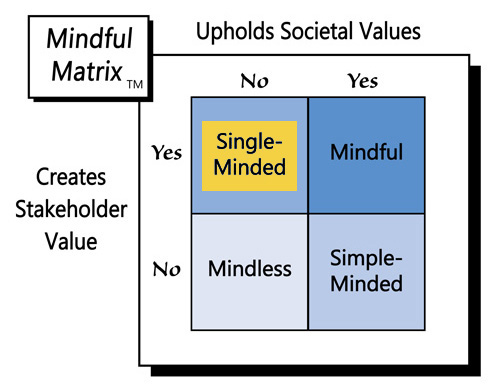







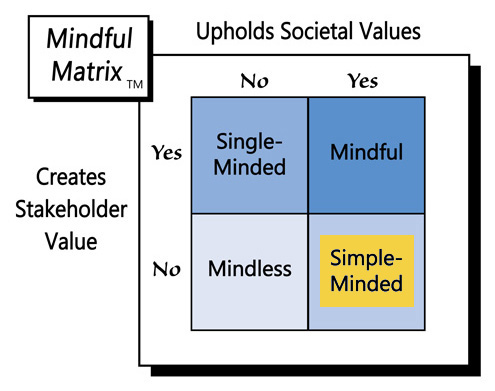
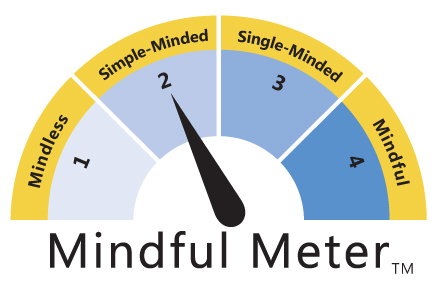
 RSS Feed
RSS Feed